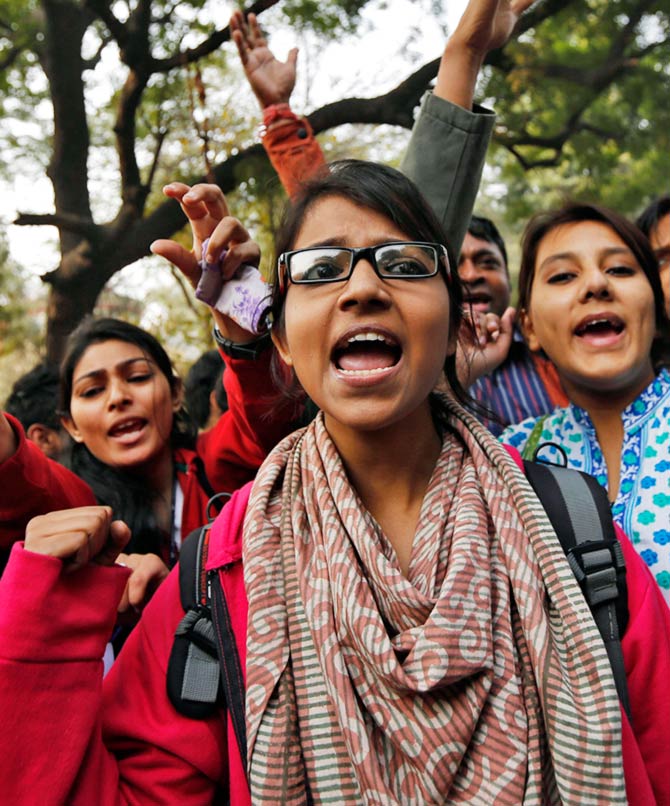Photographs: Adnan Abidi/Reuters Vicky Nanjappa/Rediff.com
According to a new clause introduced by the Telangana chief minister, only those students from Andhra Pradesh whose parents have studied in Telangana will be entitled for fee benefits.
Read on for details.
K Chandrasekara Rao, chief minister of Telangana has a shocker in store for students from Andhra Pradesh.
Around 40,000 students from Andhra who fall under the SC/ST, OBC category will not be entitled for fee reimbursement.
According to the clause introduced by the Telangana CM, only those students from Andhra Pradesh whose parents have studied in Telangana will be entitled for a fee reimbursement.
Earlier all students whose parents fell under the minimal income group were entitled for a fee reimbursement.
Today this clause known as the Parental Clause makes it mandatory that only those students whose parents have studied in Telangana can avail this benefit.
The students from Andhra are crying foul and say that this has hit them hard.
"We are stuck," says Raghav, a student who is affected by this clause.
"I am from Rayalseema but have lived all my life in Hyderabad which makes me a local.
"I don't get a fee reimbursement thanks to this clause.
"Even if I decide to move back to Rayalseema and study, I am not entitled for a full reimbursement of my fees.
"I will get only a 15 per cent reimbursement there because technically I am a local from Telangana," he says.
"This clause is quite ironic considering 40 per cent of the private colleges are owned by people from Andhra.
"The clause would only ensure a major drop in admissions from the people of Andhra.
"According to the Telangana government, this would encourage more students from the new state and they would get a better opportunity.
"We have been subject to injustice for so many years in an education system dominated by the people of Andhra," a member of the Telangana administration pointed out.
The college authorities are not in any position to do much about this.
They say the clause is harsh and should not have been introduced.
"We will explore legal options and see what could be done although it is difficult since it is a state policy which courts normally do not interfere with," said an administrative member of an engineering college in Telangana.
Note: Image used for representational purposes only.


Comment
article